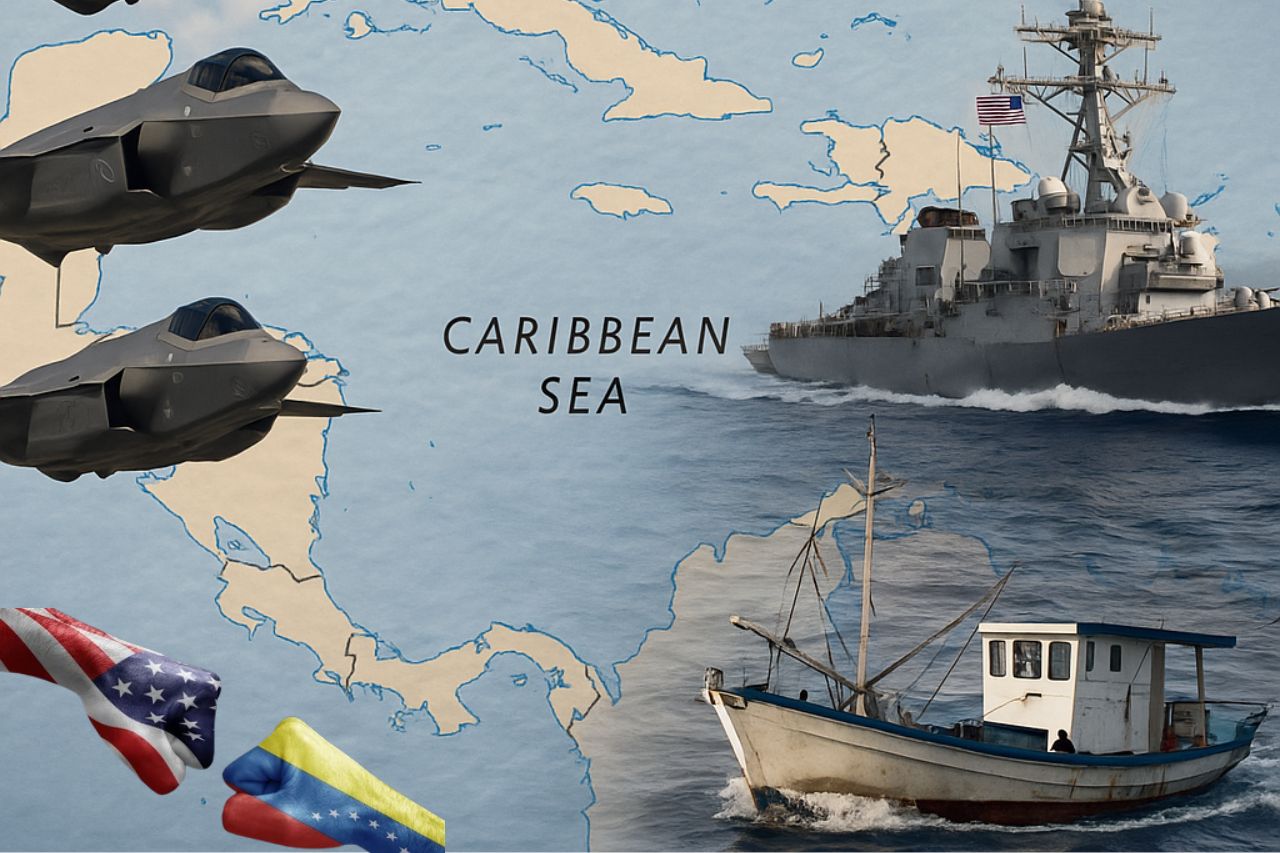Tensions between Washington and Caracas are once again on the boil, following Venezuela’s accusation that United States (US) Navy personnel illegally boarded a Venezuelan tuna boat in its territorial waters.
The incident, announced on September 13, 2025, by Foreign Minister Yván Gil, highlights the fragile state of US-Venezuela relations and raises concerns about regional security in the Caribbean.
What did Venezuela say about the US Navy action?
According to Gil, an American destroyer intercepted the vessel with nine fishermen on board. Eighteen armed personnel reportedly remained on the boat for nearly eight hours, preventing communication before releasing the crew under Venezuelan naval escort.
Caracas insists the vessel had official authorisation from its fisheries ministry, and footage released by the Venezuelan foreign affairs ministry purportedly shows US personnel alongside the fishing boat.
Why is the US-Venezuela exchange sensitive?
The timing of the raid could not be more sensitive. US President Donald Trump has already deployed warships and F-35 fighter jets to Puerto Rico as part of what Washington describes as expanded counter-narcotics operations.
Officially, the mission targets Latin American cartels. But Venezuelan leaders argue that the show of force is part of a broader strategy to weaken President Nicolás Maduro’s government and possibly pave the way for regime change.
Trump’s recent claim that US forces destroyed a Venezuelan-origin vessel carrying alleged cartel operatives has only deepened the mistrust. Caracas has labeled the operation an “extrajudicial killing,” disputing Washington’s version and linking it to local disappearances unrelated to drug trafficking. The Maduro administration has responded by calling the latest boarding incident an “illegal provocation” aimed at sparking a military escalation.
What are the regional implications of this conflict?
The standoff has significant regional implications. The Caribbean, already a strategic waterway for global trade and US military operations, is increasingly becoming a flashpoint. The stationing of advanced US aircraft in Puerto Rico enhances Washington’s surveillance and strike capabilities across northern South America, while Venezuela’s push to mobilise citizen militias signals its intent to prepare for a potential conflict.
For neighboring countries, the US-Venezuela rivalry is a worrying development. Regional navies and coast guards now face the prospect of being caught between Washington’s anti-narcotics agenda and Caracas’s sovereignty claims. This could undermine multilateral cooperation in maritime security and complicate humanitarian responses in a zone prone to natural disasters.
Ultimately, the incident underscores how fishing boats and routine patrols can quickly become triggers for larger geopolitical contests. With rhetoric hardening on both sides and military assets already in place, the risk of miscalculation in the Caribbean is rising, threatening not only US-Venezuela relations but also the stability of the wider region.
